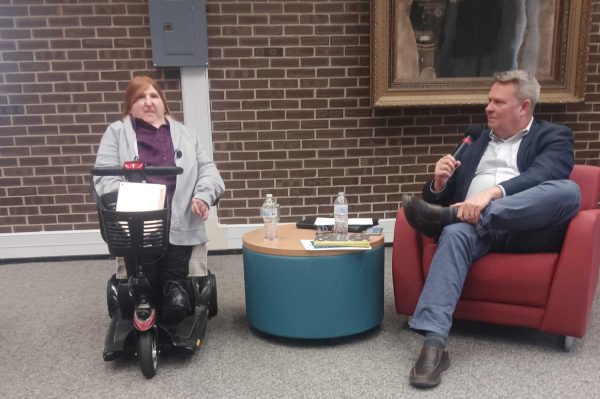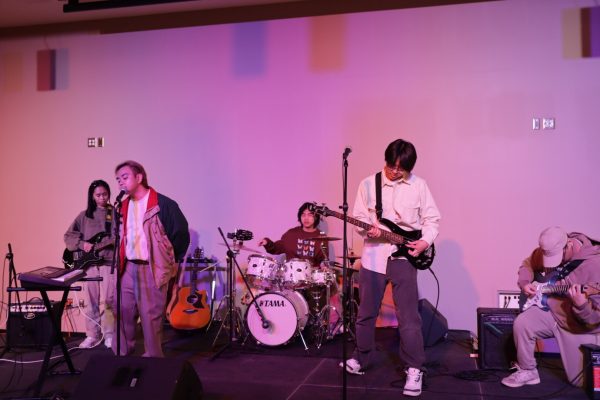‘Reality Bytes’ showcases student filmmakers
March 26, 2007
Support for the short film is growing. In short, it’s because they are short, just like our attention span.
Also growing is the broader consciousness of a generation raised on MySpace and YouTube, sharing videos, pictures and information with unprecedented ease cross-country or the across the world.
This is the vein NIU’s Reality Bytes Student Documentary Film Festival tapped into last weekend – films by young people for all audiences about things everyone should care about.
“It’s amazing; everyone says the young generation is so insensitive or selfish. These films we’re showing don’t seem self-involved at all,” said Dr. Laura Vazquez, associate professor of communication and director of Reality Bytes. “They’re displaying wide considerations, focusing on important, altruistic struggles. What’s wonderful, too, is that people here are watching them.”
The three-day weekend festival, growing vastly from the past six years of one-afternoon festivals, featured 21 works from across the country about MySpace, the Iraq war, hippy utopias and much more. On the final night, prizes were awarded to the three best films as deemed by a panel of esteemed alumni and filmmakers, along with two awards for fan-favorite films.
A weekend of film
The festival opened at The House Cafe Thursday night with sneak peeks of four works. It looked and sounded like a COMS classroom after hours, many of them with dollar drafts and sporting the $5 official eggshell-blue Reality Bytes T-shirt.
Each night opened with a mass of students vying for piles of bright yellow notebooks set out for COMS class extra credit attendance, with as many as 150 signatures per showing.
What occurred on the weekend nights in the giant NIU Art Building room 100 felt improbable: hundreds of students, community members and faculty filtering in and out of the dark, cavernous room for two four-hour shifts of amateur short documentary work. Somehow, in between the lecture-hall-chair back pain, occasional awkward cut, inevitable technical difficulty and cheap keyboard synthesized orchestra, the festival was able to open up the minds of those in attendance.
Hilary Kane, director of “A Measure of Curry,” a sensitive look into assimilation and pride, drove from the University of Oklahoma to watch her film premiere on Friday’s session.
“The films shown here aren’t so sensational, not spoon-fed, they’re sensitive,” Kane said, dressed in fabulous ethnic garb with an immeasurable amount of beads, bracelets and enthusiasm. “They all boil down to the fact that we have the same concerns. They’re made from the impulse to help people, those involved and those watching.”
The documentary impulse is based on the belief that the exposure of an issue can make a difference, that the truth can be exciting to watch unfurl in front of your eyes, and showing them at NIU to a large number of students is an investment in the future.
“The festival, putting aside the entertainment, is pedagogical. We don’t forget that we’re teachers first,” said Vazquez.
Many participants and viewers would like to see Realty Bytes expand into a broader festival; not only a national venue for student documentary work, but a technical festival with Q-and-A’s for visiting directors, workshops, and representatives for causes raised by the films.
With documentary giants like Michael Moore (“Bowling for Columbine”) and Morgan Spurlock (“Supersize Me”) making top box-office draw and a generation equipped with cheap video cameras and a general apathy for any news not presented in an engaging manner, the festival and the documentary industry could be in for a real jump-start.
What cannot be forgotten is that it is not only professionally-trained individuals bringing light to important issues; this festival celebrates the student and the learning process.
“We’re not even really filmmakers,” said Jamie Shenk and Dean Ho, University of Michigan students and directors of “Fight Like Hell.” “It’s one of our first films ever. We just got interested in the cause and had an organization or professor help us out. Anyone can make a film, now.”









